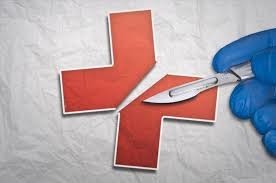One example of a negative driver of the ‘similar biologics’ market in India is the lack of health insurance in the country [1].
Lack of health insurance limits access to biologicals in India
Biosimilars/Research
|
Posted 05/02/2016
 0
Post your comment
0
Post your comment

Despite the low price of similar biologics in India compared to their reference biologicals such medicines are still mostly unaffordable for the majority of the population. This is largely due to the fact that only 25% of the population in 2010 was covered by health insurance, with the majority (more than 70%) of healthcare costs being met out of pocket.
Although health insurance in India is a growing segment of the country’s economy, it still spends less than many other countries. In 2011, only 3.9% of India’s gross domestic product was spent in the health sector. According to the World Health Organization, this is among the lowest of the BRICS (Brazil, Russia, India, China, South Africa) economies. India’s public financing for healthcare is less than 1% of the world’s total health expenditure, although it is home to over 16% of the world’s population.
Life-changing drugs are only becoming more unaffordable for the Indian population with actions taken by the country’s National Pharmaceutical Pricing Authority (NPPA). In March 2011, the NPPA allowed domestic companies Wockhardt and Biocon to increase the prices of their insulin products Wosulin (Wockhardt) and Insugen (Biocon) by 18%. Although the domestic insulin formulations are still expected to be less costly than imported versions, due to the low income of the Indian population, the price hike may still make access to the drugs more difficult. In fact, 70% of the 1.2 billion people in India are impoverished and live on less than US$2 a day [1], making paying out-of-pocket expenses for medicines a huge burden.
Conflict of interest
The authors of the research paper [1] declared that there were no conflicts of interest.
Editor’s comment
It should be noted that ‘similar biologics’ approved in India might not have been authorized following as strict a regulatory process as is required for approval of biosimilars in the European Union. The EMA (European Medicines Agency) regulatory requirements ensure the same high standards of quality, safety and efficacy for biosimilars as for originator biologicals, and also include a rigorous comparability exercise with the reference product.
Related articles
Safety concerns limit similar biologics uptake in India
Partnerships driving similar biologics development in India
Domestic biologicals cost less in India
Low costs and less stringent regulatory requirements in India
Factors affecting the uptake of ‘similar biologics’ in India
Regulation and uptake of ‘similar biologics’ in India
References
1. Malipatil NB, Haridas KM, Shruthi DP. Biosimilars and regulations: a review. J Pharm Biomed Sci. 2015;05(06):453-68.
2. GaBI Online - Generics and Biosimilars Initiative. India planning to extend drug pricing control to more drugs [www.gabionline.net]. Mol, Belgium: Pro Pharma Communications International; [cited 2016 Feb 5]. Available from: www.gabionline.net/Generics/General/India-planning-to-extend-pricing-control-to-more-drugs
Permission granted to reproduce for personal and non-commercial use only. All other reproduction, copy or reprinting of all or part of any ‘Content’ found on this website is strictly prohibited without the prior consent of the publisher. Contact the publisher to obtain permission before redistributing.
Copyright – Unless otherwise stated all contents of this website are © 2016 Pro Pharma Communications International. All Rights Reserved.
News
FDA approves Poherdy (first interchangeable pertuzumab) and Armlupeg (pegfilgrastim) biosimilars
EMA recommends approval for insulin glargine biosimilar Ondibta and denosumab biosimilar Osqay
General
Samsung Bioepis wins Pyzchiva case; Regeneron patent rulings threaten foreign biosimilars
Chinese biosimilars go global: growth, partnerships, and challenges
What is the future for the US biosimilar interchangeability designation

Biosimilars/Research Posted 05/06/2025
Biosimilar clinical efficacy studies: are they still necessary?

Biosimilars/Research Posted 27/05/2025
The best selling biotechnology drugs of 2008: the next biosimilars targets








Post your comment